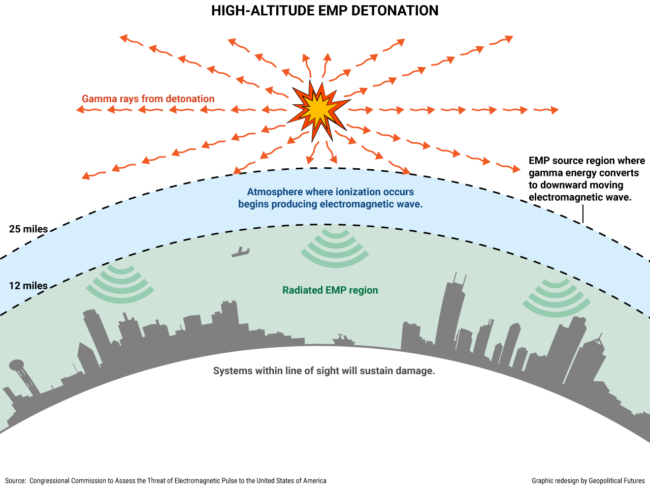
When I think back over the last 10 years I have to consider all the times it would have been entirely plausible to max out credit cards buying supplies, quit my job whilst hunkering down and waiting for the impending doom to manifest itself. If you go back and scan other doom type websites you’ll see various ups and downs where these occurrences were on the map, be they economic (stock market, housing market) or social, or pandemics and more. Alas here we all sit, me typing this out in my climate controlled home and you reading this with all of those things in the past. No collapse. No Walking Dead. No living out the adventures of any number of characters in various TEOTWAWKI novels.
Prepping (PJ’s definition): Obtaining information on and preparing for low probability / high impact events as well as high probability / low impact events while taking into consideration (and always improving upon) one’s resources and personal requirements in order to live a more stable and predictable lifestyle if and when a deviation from normality occurs.
The reality of this, things are trending in a not so good fashion. If you are reading this post then I don’t have to get too far into the weeds on that. As Mark Steyn once said in one of his books: “Something that cannot go on forever, will stop.” Yet how are we to take that along with everything else that is going on? A measured and calculated response is best in my opinion and I’ll share some of my personal examples based on the definition I outlined above.
Low Probability / High Impact
Threat: Electromagnetic Pulse (EMP) strike takes down the power grid
Mitigation: Ensure we have long term food, water, medical supplies and more importantly community to depend on where responsibilities are divided and existing in a long term SHTF environment is a possibility. Also understanding that what is planned for and what actually occurs could be totally different, hence flexibility.
Threat: Massive economic collapse worse than the Great Depression
Mitigation: Self reliance factors in place for the long term just like with the EMP scenario. Additionally, carrying as little debt as possible not knowing what that would look like (money, debts paid, collections) after a collapse. Understanding that even in the face of that, there will still be opportunities to thrive in the local community and as such maintaining those relationships that could be of benefit. Hunkering down and isolation from everyone is probably not a good idea in this scenario.
High Probability / Low Impact
Threat: Wildfire that takes out hundreds if not thousands of acres of the National Forest we live in
Mitigation: A tiered bugout strategy in place, based on the amount of time available to exit the property. If we have 5 mins to go, or 24 hours to go and anything in between. What we take and how we load it all factor in. Also a strategy in place if unable to get back to the house which involves essential documents stored in a safe deposit box off site.
Threat: Snowed in, power outages for a week or two
Mitigation: This is an easy one but most likely scenario. Enough food and supplies on hand, firewood to burn in the stove to keep warm, gasoline on site to run the generators.
As you can see from the examples I listed above it’s simply evaluating the threat and ways to mitigate against those threats utilizing the skills and resources at one’s disposal. Sometimes there are good answers and sometimes there is no answer but rather, adjusting based on how the situation develops. I have a good friend who told me: “If it’s 51% one way and 49% the other, I’ll take the 51% and simply adjust.” There are often no absolutes, no sure and certain answer. One has to be flexible.
What Prepping Is: Everything I mentioned above (see definition).
What Prepping is NOT: Bouncing from crisis to crisis and freaking out about each, buying ammo at its peak, standing in lines at the gun store, maxing out credit cards during a pandemic to buy storage food, buying into all the hype and drama on various doomsday prediction based websites / blogs. “Experts say the economy will collapse in 2015 and here are 15 reasons why!” Seven years later…
The Bottom Line
I have to admit that over the years I’ve matured, don’t we all. There have been times where I freaked out a bit over whatever was happening in the world at the time. As folks with our mindset it’s what we do, we lean into a problem instead of sitting back and waiting for help to arrive. Yet I can say that with age comes wisdom and articles like this which would indeed (if I had the time to look) probably be out of alignment with articles I’ve written 10 years ago. It’s all good, that’s the process and the way things go. I hope all of you benefitted from this and are willing to share your experiences as well.
Cheers ~ PJ









2 comments
1 pings
enjoyed that,thanks, life is definitely a roller Coaster, one minute all is great, BAM, its all gone,move away from all you built up.start from scratch,almost lost reason to go on. slowly start over,.Now pushing 80. I’ll just trod along. trying to stay alive for some reason.
have a blessed day to all.
keebler ,richmond,Va.
Author
Sounds like you have it worked out, and at least another 15 years to go. Being able to reset and start over it a critical skill.
[…] What Prepping IS, and what it IS NOT | Prepper-Resources.com is written by PJ for […]